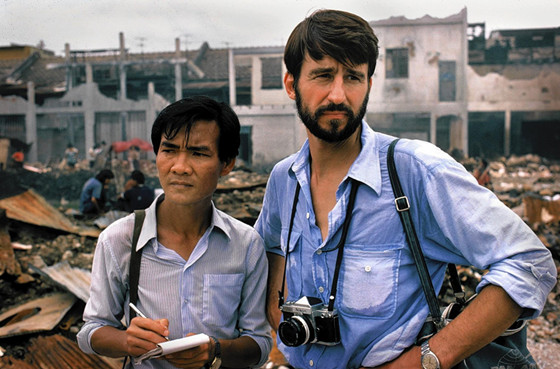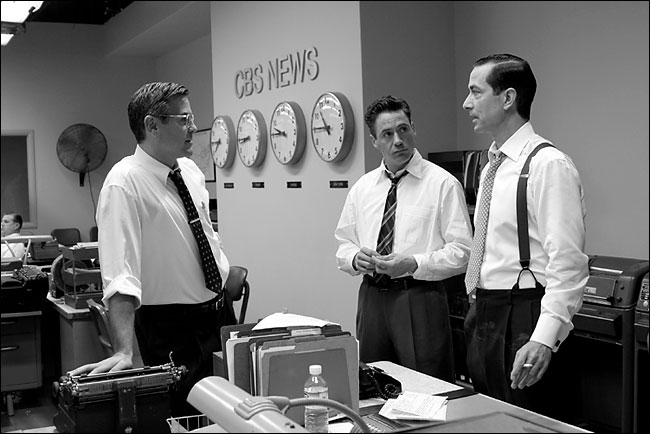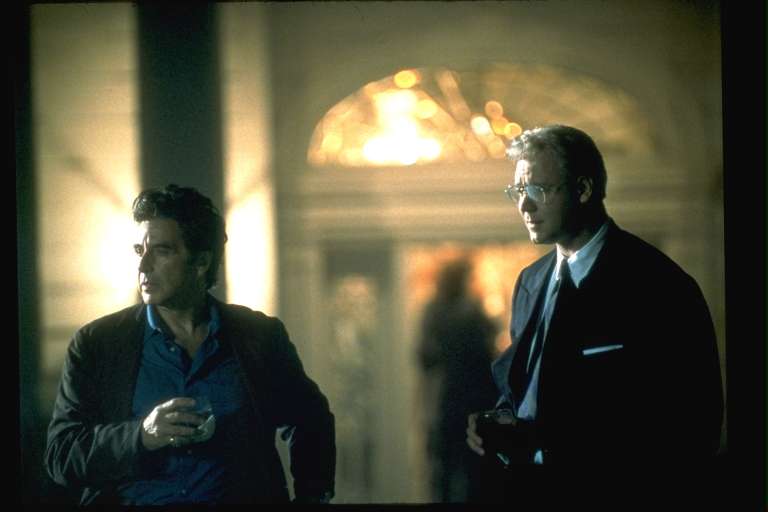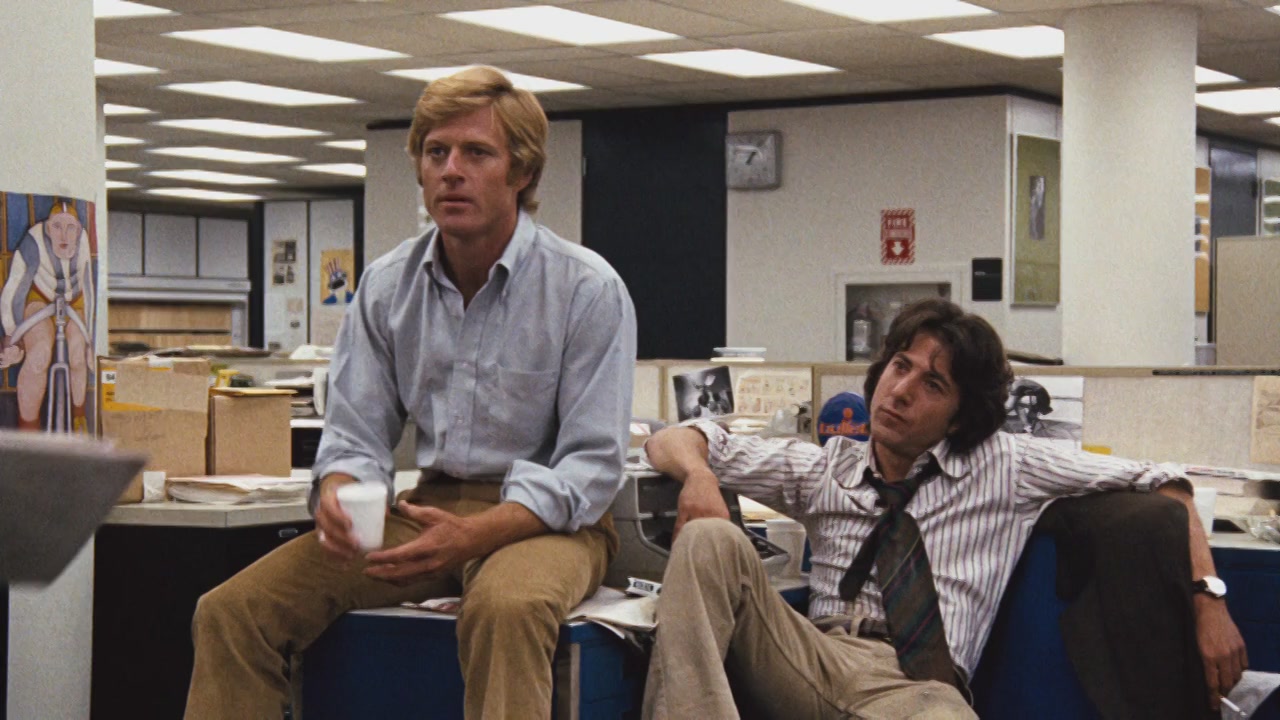5. The Killing Fields (Roland Joffé, 1984)

Winner of three Oscars and nominated for an additional four, Roland Joffé’s The Killing Fields is a film of intense emotions and a pair of unforgettable performances by Sam Waterson and Haing S. Ngor.
The latter won the Best Supporting Actor award that year, and for good reason: recruited at a Cambodian wedding by casting director Pat Golden, Ngor actually lived through all the horrors portrayed in the film, being sent by the Khmer Rouge communist regime to a labor camp where he stayed for four years before fleeing to Thailand.
Ngor’s authenticity is the movie’s calling card as the Cambodian reporter Dith Pran, who partners with American Sydney Schanberg (Waterson) to cover the ascension of Khmer Rouge in the country.
Joffé’s movie, a sprawling 2h21min war epic, is also one of the most moving portraits of friendship between men of different cultures, and a tribute to the courage both of the survivors of Khmer Rouge’s regime and the brave reporters, local and foreign, that helped make sure it didn’t stay out of history books.
Widely considered one of the best war dramas ever made, one of the finest British films of its time, and placing 60th in the AFI’s list of most inspiring American movies, The Killing Fields is one of those films that are as demanding as they are rewarding.
4. Good Night, and Good Luck (George Clooney, 2005)

Clooney’s best rated movie in his whole career as a director, Good Night and Good Luck showcases his passion for both journalism and politics. It’s an historic retelling of Edward R. Murrow (David Strathairn, in a brilliant performance) campaign against Senator Joseph McCarthy in the early 1950’s, aided by his loyal producer Fred Friendly (Clooney).
The personal toll taken by both men and their colleagues on CBS at the time is not minimized by Clooney’s movie, but Good Night and Good Luck is as much about fleshing out these characters as it is about highlighting their strong convictions and what they could teach us today.
Murrow’s firm stand against McCarthy’s fear mongering campaign against the so called “communist threat” in the 50s is such an historic piece of journalism that the CBS anchor is still cited whenever someone raves about how much journalists were more committed to real issues in the past.
Watching Good Night and Good Luck, it’s hard to disagree, though Clooney’s movie is anything but condescending, focusing on accurately reconstituting the times in which it’s set and delivering a faithful recreation of the climate in CBS headquarters.
Be it for the black and white photography or the contrived drama of its procedures, Good Night and Good Luck is a movie any journalist would be proud to see representing their profession.
3. The Insider (Michael Mann, 1999)

One of the most celebrated films by masterful director Michael Mann, 1999’s The Insider is actually based in a true story, which seems almost unbelievable when you spell out the plot. In it, Lowell Bergman (Al Pacino, in terrific form) is the main producer of 60 Minutes on CBS, and he sniffs a story about the tobacco industry when a research biologist for Brown & Williamson gets fired and is coerced to sign a pervasive confidentiality agreement.
Dr. Jeffrey Wingard (Russell Crowe) eventually concedes an interview, despite the potential legal consequences and his crumbling marriage. When CBS News trades leaderships, however, the interview is shelved, and Wingard is hung out to dry.
So this is not your typical idealistic journalism movie. It’s a slow burning thriller about journalistic irresponsibility and the way big companies (be it big tobacco companies or big news conglomerates) gets in the way of our professional activity.
It’s a complicated moral tale with spectacular performances from Pacino, in what could very well be his last stellar turn, the always terrific Russell Crowe and a team of supporting actors that include Christopher Plummer, Philip Baker Hall, Michael Ganbon and Rip Torn.
2. All the President’s Men (Alan J. Pakula, 1976)

The Watergate scandal and Richard Nixon’s presidency and fall from grace have such a pervasive influence on American culture it’s easy to forget that Alan J. Pakula did a movie about it just 4 years after it happened.
All The President’s Men is a staple on best journalism movie lists, and that’s no coincidence, as its powerful message and drive have political and emotional resonance up until today, a full forty years after it was made.
Reporters Bernstein and Woodward’s comprehensive and difficult investigation of the major political misconduct of President Nixon becomes a truly staggering odyssey in Pakula’s capable hands and its protagonists Dustin Hoffman and Robert Redford’s performances.
Jason Robards deservedly won the Oscar for his portrayal of The Washington Post’s editor Benjamin Bradlee, but the stars here are Hoffman and Redford, sparking a chemistry that mirrors that of their characters, unlikely partners at odds who work well together.
Hal Holbrook also makes an indelible mark as Deep Throat, the legendary insider informant that Bernstein and Woodward found instrumental in their investigation. Pakula’s film portrays an historical instance in which journalism served its true purpose by informing its audience about a gross miscarriage of power.
1. Spotlight (Tom McCarthy, 2015)

This year’s Best Picture winner at the Academy Awards is the best journalism movie of all time, perhaps tied with All The President’s Men, because of its tremendously minute approach to the daily work of reporters and editors, and the way they sometimes become a worrying contrivance for people who wish to abuse the position of power they’re put in.
Spotlight is the kind of film in which a minor discovery in a large investigation becomes a thrilling moment – be it when Walter Robinson and his reporters find registry books from the church that might indicate which priests were moved from parishes because of sexual abuse charges, or when Sacha Pfeiffer directly confronts a priest accused of pedophilia.
Spotlight’s engaging quality has to do with the way it constructs these reporters’ characters even with the little time dedicated to their personal lives, yes, but it also has to do with the way it pays tribute to the daily grind of investigative journalism.
Tom McCarthy’s script also does itself the favor of never underestimating the consequences a story like the one these reporters investigate (child abuse epidemic in the Catholic church) may have for the ones investigating it.
In showing the way the reporters themselves get confronted in their faith (or lack thereof), the way the trust in the church is a central pillar of the community they live in, Spotlight is a pervasive portrait of the way journalism has the potential of changing things and profoundly affect people.
It’s a profession that needs to be practiced with extreme care, and yet journalists are still simple human beings, and human beings make mistakes. McCarthy’s honesty about that is what eventually wins Spotlight the top spot in our list.
Author Bio: Caio Coletti is a Brazilian-born journalist, a proud poptimist, and has too many opinions to keep them all to himself.